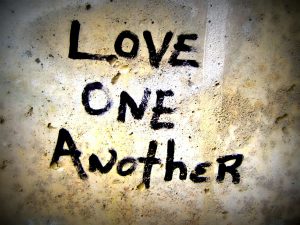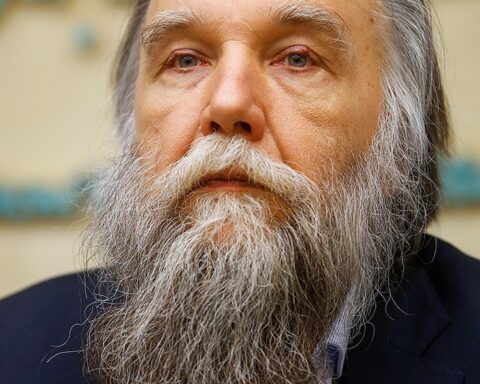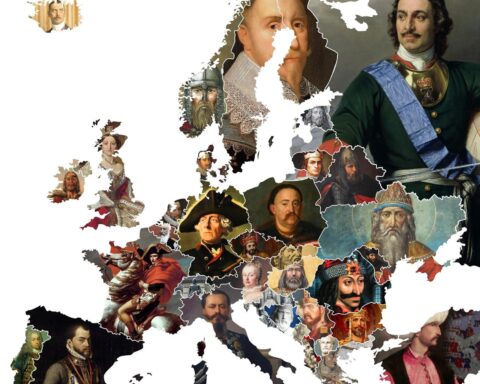The Torah lists the birds that we are prohibited from consuming. Rashi explains that the chasidah is a stork. Its name, chasidah, is derived from the root chesed, which means kindness. What is the connection between stork and kindness? Rashi answers that the stork performs kindness with its friends.
 According to the Rambam, Maimonides, one of the reasons the Torah forbade us to eat non-kosher birds is because they possess cruel character traits. If we were to eat such birds, these traits could become part of our personalities (ie. ‘you are what you eat’). If so, what would be wrong with eating a chasidah? It appears to have a fine and giving character, as evidenced by the fact that its name is derived from the word chesed, kindness. Yet, the sages understand and relate that the stork performs kindness only with its friends, which is a very negative trait and conclude that the stork is not really a kind creature after all. The Scriptures demand that we become creatures of true kindness, who are concerned for and help all people, whether they are known to us, such as our friends, or strangers.
According to the Rambam, Maimonides, one of the reasons the Torah forbade us to eat non-kosher birds is because they possess cruel character traits. If we were to eat such birds, these traits could become part of our personalities (ie. ‘you are what you eat’). If so, what would be wrong with eating a chasidah? It appears to have a fine and giving character, as evidenced by the fact that its name is derived from the word chesed, kindness. Yet, the sages understand and relate that the stork performs kindness only with its friends, which is a very negative trait and conclude that the stork is not really a kind creature after all. The Scriptures demand that we become creatures of true kindness, who are concerned for and help all people, whether they are known to us, such as our friends, or strangers.
The name chasidah indeed alludes to kindness, but the name is also concerned with the world of chassidus. The Sages tell us that chassidus means doing something ‘above the letter of law,’ lifnim mishuras hadin. The stork is kind to its friends, but it always feels that its kindness is going beyond the letter of the law, that it is doing something quintessentially generous. The stork always looks at itself as being a chassid, a very pious being. But, in reality, being kind to others is an obligation, and we must never feel that we are doing something ‘above and beyond our duty’ when practicing kindness. This is a negative character trait the Scriptures want us to avoid.
As the Alter Rebbe from Slabodka said:
The Torah tells us in Leviticus 19:18 that we must love our fellow man as we love ourselves. When we love ourselves, we do not feel that we are doing a good deed , for love is an emotion that is natural and deeply rooted; so too when we love our fellow man, we should not do it merely for the sake of performing a good deed, but as a natural tendency.
For example, we should never visit a sick person with the intention that the patient can become the object of our good deed. Rather, we must sincerely care for the patient and demonstrate our concern. The opposite is also true: we must not perform a kindness only because we think it is moral and ‘the right thing to do.’ We must bear in mind the deeds of kindness and walk in His ways. It is difficult but critical to do, so that we become the complete person that God demands.
We are obligated to go out of our way to serve and be kind to others. One way to accomplish this is very simple and basic, but often eludes us: greeting people properly. How important is it to offer a friendly welcome to someone? How vital is it to say hello to someone? Jewish tradition teaches that when we greet someone we are actually giving them a blessing. In fact, there is an interesting halacha, rabbinic custom, that we are not allowed to interrupt and talk while reciting the Shema (Hear O Israel, the Lord your God the Lord is One cf. Dty. 6). However, if someone else greets you in the middle of your recitation of the Shema, you are allowed to respond. How are we to understand this?
From this custom we can begin to appreciate just how vital friendship is. People are not meant to be alone, to be lonely. God wants us to relate to and help one another. Perhaps the easiest way to help my fellow man is by greeting him. When I greet him, I acknowledge that he is meaningful to me and I am stating that he has touched my life, even if ever so slightly. I tell him that it is good to see him and that I am happy that he is in the world and I am joyful that I am not alone. On a personal note, I always try to make it a point to call the cashier or whoever is helping me by their name. It’s amazing how much a person’s face lights up or brightens, even if ever so slightly, when you remember to quickly glance at their name tag and say “Thank you so-and-so.”
Jesus taught us in Matthew 5:
If you love those who love you, what reward will you get? Are not even the tax collectors doing that? And if you greet only your own people, what are you doing more than others? Do not even pagans do that? Be perfect, therefore, as your heavenly Father is perfect.
I have been thinking a lot about the commandments to love and to serve one another lately. I have been meditating on the phenomenal example of Jesus, Who on the night He was betrayed, took a basin and filled it with water and washed the feet of every one of His disciples, even the one who was shortly to betray Him. How the Son of Man came to serve and not to be served and the command that we go and do likewise. That people will know we are His disciples and belong to Him when we are careful to follow His profoundly moving example set before us on the night He was betrayed.
 Lately, as I mediate disagreements that my children occasionally have with one another, I begin by asking them how they are serving one another and if their behavior is what God requires of them in the critical areas of love and service. I am reminded that whoever claims to live in Him, must not ask himself “What would Jesus do?” but simply live as He did (cf. I John 2:6), since I have no idea what Jesus would do in any given situation, but I do know what He did: that He laid down His life and poured it out on the tree on behalf of those who hated Him and who loved the darkness, only to take it up again, so that in Him we would have eternal life, and experience life to the fullest during our short sojourn here on earth.
Lately, as I mediate disagreements that my children occasionally have with one another, I begin by asking them how they are serving one another and if their behavior is what God requires of them in the critical areas of love and service. I am reminded that whoever claims to live in Him, must not ask himself “What would Jesus do?” but simply live as He did (cf. I John 2:6), since I have no idea what Jesus would do in any given situation, but I do know what He did: that He laid down His life and poured it out on the tree on behalf of those who hated Him and who loved the darkness, only to take it up again, so that in Him we would have eternal life, and experience life to the fullest during our short sojourn here on earth.
Dear friends, let us love one another, for love comes from God. Everyone who loves has been born of God and knows God. Whoever does not love does not know God, because God is love. This is how God showed his love among us: He sent his one and only Son into the world that we might live through him. This is love: not that we loved God, but that he loved us and sent his Son as an atoning sacrifice for our sins. Dear friends, since God so loved us, we also ought to love one another. No one has ever seen God; but if we love one another, God lives in us and his love is made complete in us. (cf. I John 4:7-12).










Kindness only with your friends is evil.
Therefore you must invite muslim refugee hordes in to live as your neighbors?
That’s what you conclude from this?
@tz
Oh, please. This article had nothing to do with that and you know it. Don’t be obtuse.
Paul often began his letters with the greeting, “Grace and Peace to you”. It is the standard greeting of the Catholic mass. Thank you for adding insight about the love of a simple greeting.
Grace and peace be with you!
[…] Source link […]
If a person is the sort that has a hard time feeling empathy and compassion and so on, just a cold hearted sort of person, does this mean that they ought not do kind things because they will always be insincere? It seems to me that doing things you don’t mean or feel because you know they are right has a place.